Race and Ethnic Studies
Past NPAC Events
Read about our past colloquia:
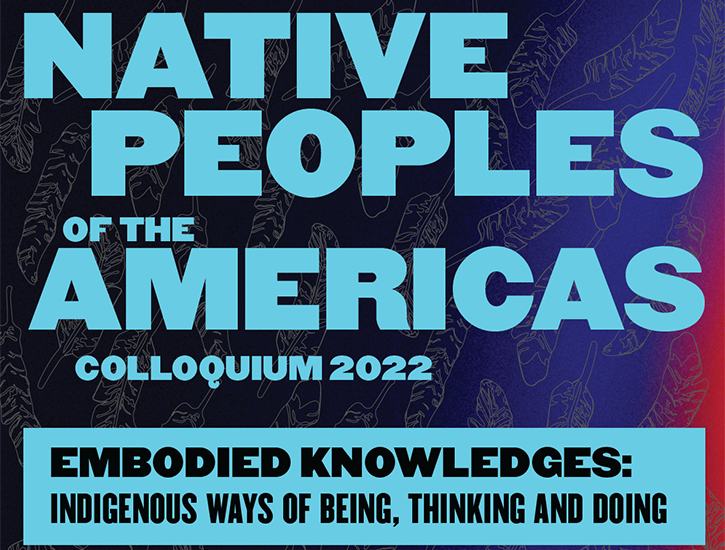
The Native Peoples of the Americas Colloquium is an annual gathering that shines light on Indigenous Peoples’ history, culture and spirituality through presentations, films, performances and workshops. Our most recent Native Peoples of the Americas Colloquium covered Indigenous ways of being, thinking and doing.
NPAC 2022: Embodied Knowledges: Indigenous Ways of Being, Thinking and Doing
Decolonizing Your Pantry
Every time we walk into a grocery store, we make a series of decisions that impact everything, from our bodies and minds to the air we breathe and the soil we walk upon. Colonial food systems provide lots of calories, but they are deficient in spiritual and emotional nourishment and they lack any connection to land and people. Food sovereignty is a vitally important movement that asks us to think about the systems that are supported by our grocery purchases. Join Luke and Linda Black Elk as they discuss simple and efficient ways to begin the process of decolonization on the path to food sovereignty.
Language Revitalization & Gender Diversity
Join Kai Minosh Pyle (right) and Awanigiizhik Bruce (left) for a conversation regarding their efforts to reclaim space in their languages for gender diversity. In addition to sharing specific Two-Spirit language and historical knowledge, they will discuss their process and journeys in reclaiming these teachings and the ways they have tried to spread what they have learned to other community members. Drawing on what they have learned over the years, they will offer stories to show why talking openly about gender diversity in language revitalization movements is critical for Indigenous nations to thrive.
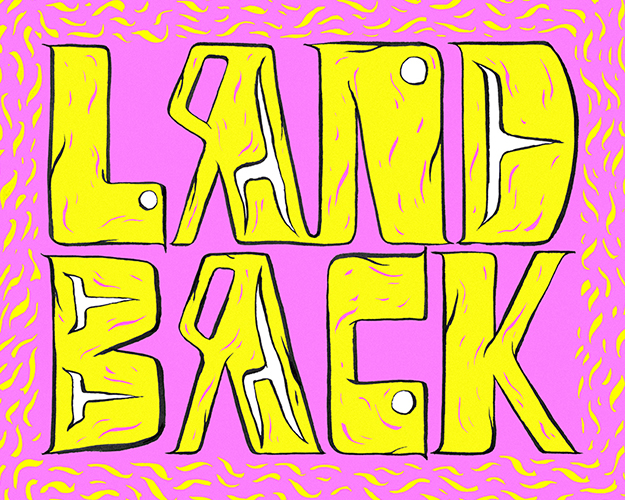
Due to COVID-19, the 2021 Colloquium, "Indigenous Sovereignty and Self-Determination" was held virtually Oct. 18-19. Presentations included those from local, national and international scholars and activists. Over two days, through different presentations and panel discussions, the Colloquium tackled subjects indigenous art at activism, sovereignty in law and letters and contemporary land back movements.
NPAC 2021: #LandBack: Indigenous Sovereignty and Self-Determination
Indigenous Art & Activism
Jim Denomie (Lac Court Oreilles Band of Ojibwe) and Whess Harman (Carrier Wit’at) shared their art and discussed how they crafted it to advance Indigenous rights.
Respecting the Land
Leon Briggs (Seneca Nation, Tonawanda Reserve) discussed land use and sovereignty, as well as the protection of sacred medicinal plants for the next seven generations. The talk included the importance of creating and maintaining natural green spaces, specifically those incorporating indigenous plants.
Sovereignty in Law and Letters: Mary Kathryn Nagle
Litigator and playwright Mary Kathryn Nagle (Cherokee Nation of Oklahoma) discussed the role of courts in asserting and preserving tribal sovereignty.
Recognition, Reclamation and Rematriation: Contemporary Land Back Movements
Corinna Gould (Lisjan Ohlone) from Sogorea Te’ Land Trust, Chase Iron Eyes (Oglala Sioux) from Lakota People’s Law Project and Kanahus Manuel (Secwepemc) from Tiny House Warriors detailed the work they pursued to protect the sovereign land rights of their nations, as well as the importance of making Indigenous knowledge visible as a necessary alternative to ongoing settler colonial practices.
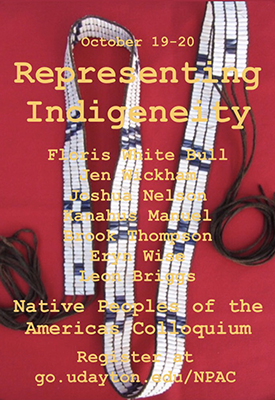
Due to COVID-19, the 2020 Colloquium, "Representing Indigeneity," was held virtually Oct. 19-20. Presentations included local, national and international scholars and activists. Over two days through different presentations and panel discussions, the Colloquium tackled subjects regarding indigeneity in film and social media.
NPAC 2020: Representing Indigeneity
Inner Peace and Traditional Healing
Speaker Leon Briggs (Tonawanda Seneca) discussed the film Inner Healing, which details Adrian Esposito’s journey toward peace and healing through traditional healing practices.
Representing Indigeneity in Film
A panel discussion featured Floris White Bull, a member of the Standing Rock Lakota Nation and a writer and advisor for Awake: A Dream of Standing Rock, and Jen Wickham, a Gidimt’en clan member and producer of the film Yintah, which chronicles a decade of Wet’suwet’en struggle. They discussed their use of film as a means of advocacy and to build awareness of the issues facing their communities.
Paving the Way: Opening Pathways for Native Film
Speaker Dr. Joshua Nelson (Cherokee) discussed the Native Crossroads Film Festival and Symposium, which has brought hard-to-see Native films to the central Oklahoma community. He also provided a sneak peek at the PBS documentary Searching for Sequoyah, which investigates the mystery of what became of the inventor of the Cherokee syllabary on his final journey to Mexico and his legacy.
Representing Indigeneity in Social Media
In this panel discussion Brook Thompson (Yuruk and Karuk), Kanahus Manuel (Secwepemc, Tiny House Warriors) and Eryn Wise (Jicarilla Apache and Laguna Pueblo, Seeding Sovereignty) discussed their uses of social media to advocate for Indigenous sovereignty and land rights.
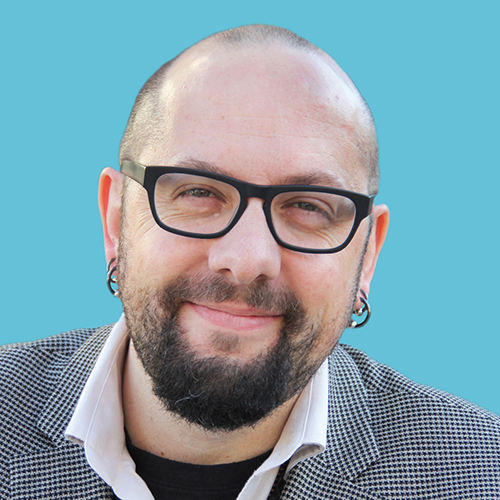
The 2019 Colloquium, "Indigenous Futures / Futurisms" was held November 18-19 on the University of Dayton campus. Presentations, performances and workshops included local, national and international scholars and activists.
The 2019 Keynote Address, "The World is Our Wounded Relatives: Considering Kinship at the Edge of Oblivion" was presented by Daniel Heath Justice (Cherokee Nation). Justice is a prolific author and a Professor of First Nations and Indigenous Studies and English at the University of British Columbia.
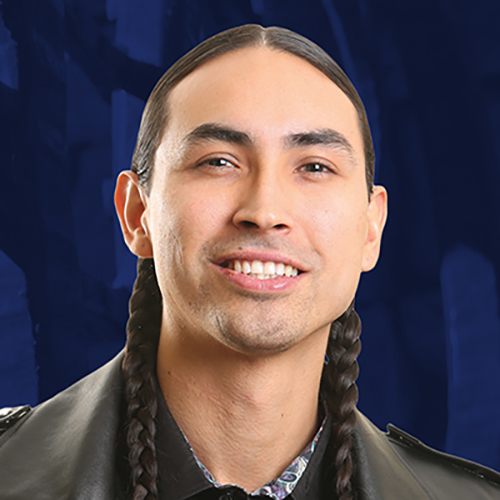
Special Guest Presenter was Award-winning comedian and actor Tatanka Means (Oglala/Lakota/Omaha/Dine’). Means is an award-winning actor, stand-up comedian and motivational speaker from Chinle, Arizona. He represents the Navajo, Oglala, Lakota, and Omaha Nations.
